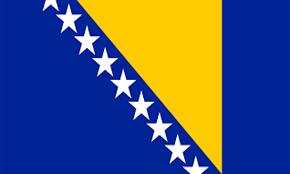Interview with Advo Muftic
general
8 April 2021
As part of our Living History project we interviewed Advo Muftic
I would like to thank you for your time and for talking to us about your experience and job in mining for the Eastern Mining Blog. This is part of our „Living history project“. Firstly, can you tell us something about yourself?
My name is Avdo Muftić and I am a pensioner. I was once a versatile activist, but today I spend more time at home. Most of my free time I dedicate to my hobbies, philately and numismatics.
What was your first job?
I enrolled in the craft school in the 60's, but I did not finish it. As a young man I started working in the construction company "Bobovac" Vareš. I worked there until I joined the army, and after returning from the army I started working for the police. During that period, I finished high school for internal affairs and worked as a policeman until retirement.
What did you like most about your job and why did you like working?
Being a policeman is both nice but also difficult. Nice, because the main goal of that job is to help people, and difficult because we also meet a category of people who do not accept social norms. So, as hard as it was, it was beautiful, as well.
Are you familiar with the work of the lead, zinc and barite mine in the municipality of Vareš?
Yes, of course. With the opening of the mine, we all hoped for great prosperity, but it was not as we expected, and we all know what happened in the end.
Did any of your family members or relatives work in the mine?
None of my family members and relatives worked at Energoinvest, but my wife's sister and her relatives from Pržići worked there.
When you look back at life then and now, in the area of the municipality of Vareš, can you make a comparison?
It is difficult to make a comparison to life then and now. Primarily due to different periods, such as the period of Austro-Hungarian rule when a miracle happened in Vareš - a small town was made into a city that had electricity, schools, health centres, cinemas, railways, etc. Then Vareš flourished, as in the period of work of the Iron Ore Mine and Ironworks in the 80's when Vareš had 23,000 inhabitants with 8,000 employees. There is a lot of positive data from that time and we cannot compare it to the current life in Vares.
How did Vareš look like at the peak of its power at a time when the lead, zinc and barite mine was operating?
Life was much more beautiful then and I believe most of the local population who remembers that period is nostalgic. Every area of life was regulated, from health to education. If that beauty were repeated in this age, then I could say that it is as beautiful today as it once was.
When the mine and the ironworks were operating, was sufficient attention paid to environmental protection and compliance with the laws of the area at the time?
No it was not. The population of Pržići had huge problems with the production of the mine because everything was destroyed and polluted. The law should have taken care of the protection of the environment and human health, but it never did.
Do you have any message for youth who are just starting to build their careers?
I would like to tell young people to accept the book as their best friend and to build their better future with it. Not to allow themselves to grow old, and to repent for not being diligent and motivated to change for the better. I am sure that better days will come because Bosnia will not always be as it is, nor will Vares always be as it is. They should stay, guard their homes and their homeland.
Thank you for your time with the hope that this cooperation will continue and improve!
Thank you for choosing me for this interview. And I would add that I hope and expect that your company will be the main instigator that will start the progress of our Vareš and that it will be the bearer of all positive changes in the future, because once this has started, the others will follow suit.


